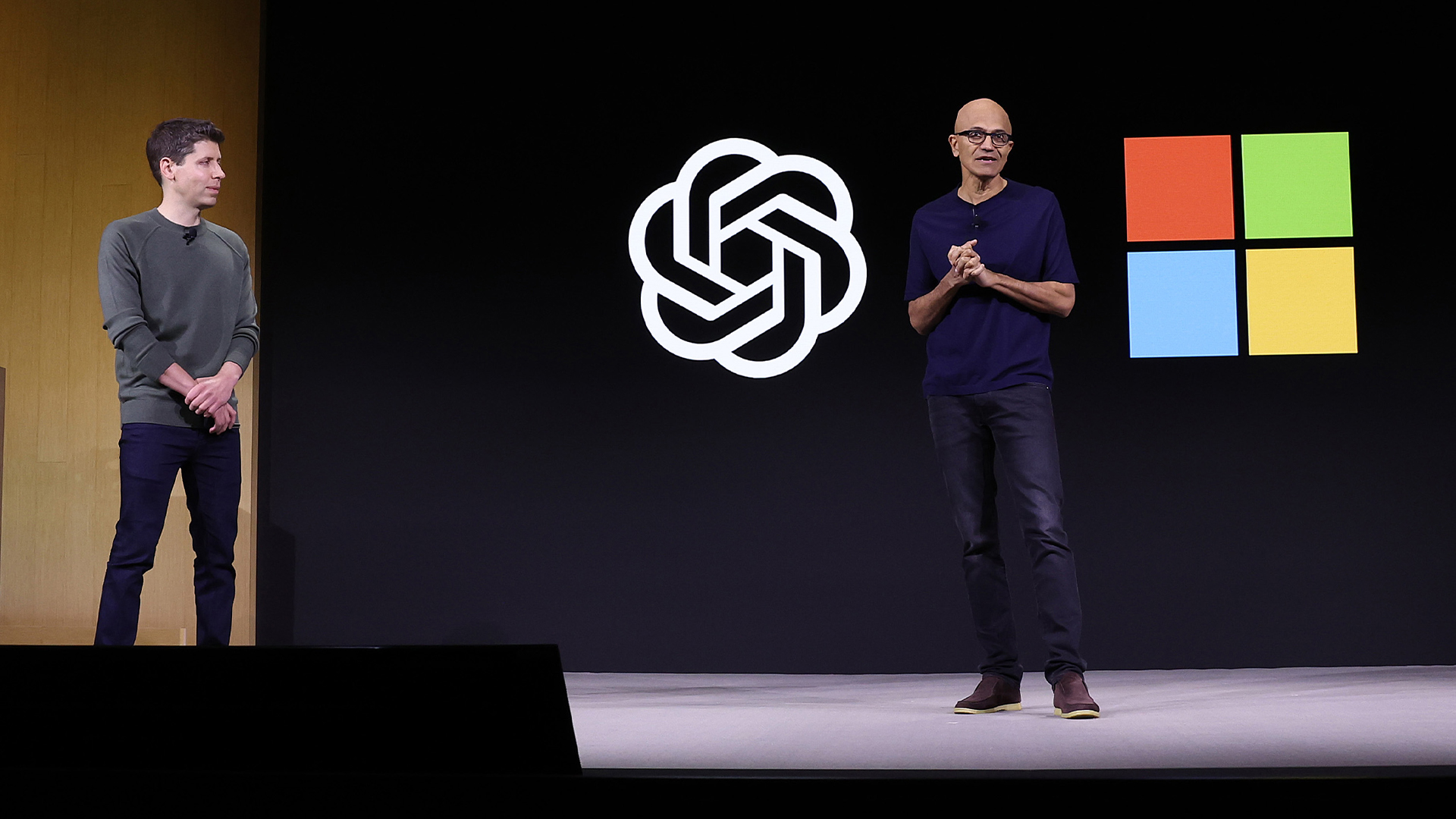Public sector AI adoption could save workers millions of hours in admin each week
With public sector workers drowning in admin, AI could bring huge efficiency gains, according to a new report from Microsoft


The use of AI tools in the public sector could save staff up to 23 million hours of admin work each week, according to new research.
The study, commissioned by Microsoft and carried out by Goldsmiths University and Symmetry, found the technology could save each public sector worker an average of around four hours per week.
In particular, the research found that doctors, nurses, teachers, and police officers are among those who could benefit the most from AI tools. The most time-consuming task across all these professions, the study noted, is managing information, with each worker spending more than eight hours on admin work every week.
Nearly half (45%) of public sector respondents said they are 'drowning in unnecessary administrative tasks', which is adding to their weekly workloads and affecting their mental health and wellbeing.
More than half said the volume of admin work is having a negative impact on their ability to actually do their job, with 54% admitting this affects their job satisfaction and motivation.
Meanwhile, half said that high admin workloads are compromising the quality of service they provide and limiting the time they can spend with the public or patients.
Dr Chris Brauer, director of innovation at Goldsmiths University, said the study highlights the marked benefits AI could unlock for individual workers and the broader public sector.
Sign up today and you will receive a free copy of our Future Focus 2025 report - the leading guidance on AI, cybersecurity and other IT challenges as per 700+ senior executives
"Rapid advances in artificial intelligence mark an inflection point for public sector organizations across the world. Generative AI and large language models have the transformative potential to reshape government operations and redefine the future of public service delivery," Brauer said.
"Governments cannot afford to remain frozen as AI transforms the world around us."
How the public sector can unlock AI benefits
The report from Microsoft made a number of recommendations for how public sector organizations can integrate AI tools within daily operations and deliver service improvements.
This included the establishment of a 'National AI Delivery Centre'. The center would act as a centralized unit within Whitehall focused specifically on driving AI adoption across government departments.
As part of the move, this unit would share expertise and resources from government, academia, and industry to develop scalable AI solutions made specifically for public sector use cases.
The report also called for the introduction of guiding principles to ensure all public sector employees benefit from AI while being protected from potential risks.
A recent study found that nearly four-in-ten UK councils are allowing staff to use AI tools without having a responsible use policy in place. The study called for greater safeguards and guidance on the use of AI for staff at local authorities.
Microsoft and Goldsmiths also called for the implementation of a comprehensive AI upskilling strategy targeting public sector leaders and employees to both improve understanding of the technology and its responsible use.
Breaking down data silos to drive innovation
Among the key recommendations of the Microsoft report was that data silos should be broken down to facilitate greater cross-functional collaboration.
Greater investment is required to modernize data infrastructure, the study noted, and tech leaders within the public sector should focus on promoting data sharing across government entities.
Procurement processes should also be updated to prioritize AI technologies, while local authorities should be encouraged to support public-private partnership models.
All this will require investment, however, and the report noted that the Treasury’s approach to strategically invest in AI technologies across the public sector should be updated.
RELATED WHITEPAPER

This would include the introduction of an 'AI Transformation Mandate' for all departments to identify and implement AI opportunities.
"If AI is rolled out effectively across public services and the administrative burden is reduced, there’s huge potential to enable front line public sector workers to spend more of their critical time on delivering front line work," said Hugh Milward, vice president, external affairs at Microsoft UK,
"By acting now and strategically investing in AI, the UK can position itself as a global leader in AI innovation, driving economic growth and improving public services for all citizens."
Emma Woollacott is a freelance journalist writing for publications including the BBC, Private Eye, Forbes, Raconteur and specialist technology titles.
-
 Pax8 and Microsoft are teaming up to supercharge MSP growth
Pax8 and Microsoft are teaming up to supercharge MSP growthNews The new agreement includes integration between Pax8 and Microsoft Marketplace alongside a new OneCloud Guided Growth enablement initiative
-
 Microsoft and Nvidia are teaming up again to support UK startups
Microsoft and Nvidia are teaming up again to support UK startupsNews Agentic Launchpad will offer participants AI expertise, training and networking, and marketing support
-
 Microsoft’s huge AI spending still has investors sweating despite solid cloud growth
Microsoft’s huge AI spending still has investors sweating despite solid cloud growthNews Capital spending at Microsoft continues to surge, despite previous claims it would cool down
-
 Microsoft gives OpenAI restructuring plans the green light – but its terms ensure it still wins in the long run
Microsoft gives OpenAI restructuring plans the green light – but its terms ensure it still wins in the long runNews The deal removes fundraising constraints and modifies Microsoft's rights to use OpenAI models and products
-
 Microsoft unveils additional CEO to work alongside Nadella
Microsoft unveils additional CEO to work alongside NadellaNews The move aims to free up Microsoft CEO Satya Nadella to focus on AI
-
 Microsoft CEO Satya Nadella says UK ties are 'stronger than ever' as tech giant pledges $30bn investment
Microsoft CEO Satya Nadella says UK ties are 'stronger than ever' as tech giant pledges $30bn investmentNews Microsoft CEO Satya Nadella says it's commitment to the UK is "stronger than ever" after the tech giant pledged $30bn to expand AI infrastructure and build a new supercomputer.
-
 Microsoft warns of slow Azure traffic
Microsoft warns of slow Azure trafficNews Suspected Houthi attack on Red Sea cables likely to affect Europe-Asia connections for weeks
-
 Microsoft could be preparing for a crackdown on remote work
Microsoft could be preparing for a crackdown on remote workNews The tech giant is the latest to implement stricter policies around hybrid working without requiring a full five days in the office


